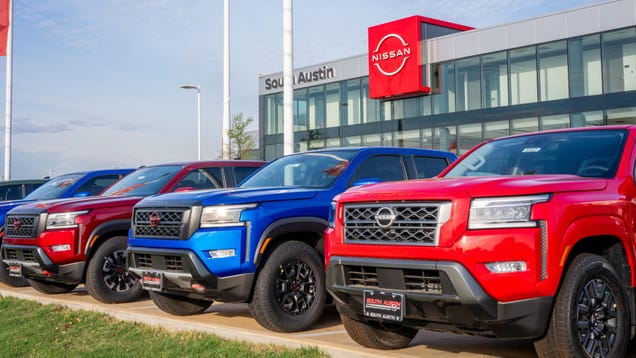Nissan’s Current Challenges: An In-Depth Analysis
Understanding Nissan’s Sales Decline
Nissan, a brand once synonymous with innovation and reliability, is currently grappling with significant challenges that have led to disappointing global sales figures. Recent reports indicate that the automaker’s performance has not only fallen short of expectations but has also raised concerns about its ability to meet fiscal year targets. This downturn is alarming for stakeholders, investors, and consumers alike, as it reflects broader trends within the automotive industry.
The decline in sales can be attributed to several factors, including increased competition, shifts in consumer preferences, and supply chain disruptions exacerbated by global events. According to a recent analysis by automotive market experts, Nissan’s market share has been steadily eroding, particularly in key regions such as North America and Europe. This trend is compounded by the rapid rise of electric vehicle (EV) manufacturers, which have captured the attention of environmentally conscious consumers.
The Impact of Leadership Changes
Another critical aspect of Nissan’s current predicament is the impact of leadership changes within the company. The departure of key executives and the ongoing restructuring efforts have created uncertainty regarding the company’s strategic direction. This instability can hinder decision-making processes and affect investor confidence.
For instance, the fallout from the Carlos Ghosn scandal continues to resonate within the organization. Ghosn, the former chairman, was instrumental in Nissan’s rise to prominence but left a legacy of turmoil that the company is still trying to navigate. The lack of a clear, cohesive vision from the top has left many wondering how Nissan plans to reposition itself in a rapidly evolving market.
Consumer Sentiment and Brand Loyalty
Consumer sentiment plays a crucial role in the automotive industry, and Nissan is not immune to the shifting tides of public opinion. Recent surveys indicate that brand loyalty is waning, particularly among younger consumers who are increasingly drawn to brands that prioritize sustainability and technological innovation.
Nissan’s historic reputation for producing reliable vehicles is being challenged by competitors who are not only matching but often exceeding Nissan’s offerings in terms of technology and eco-friendliness. For example, brands like Tesla and Rivian have successfully captured the imagination of consumers with their cutting-edge EV technology and sustainable practices. As a result, Nissan must work diligently to regain consumer trust and loyalty.
Strategies for Recovery
To address these challenges, Nissan must adopt a multifaceted approach that includes revitalizing its product lineup, enhancing customer engagement, and investing in sustainable technologies. A renewed focus on electric vehicles could be a game-changer for the company. With governments worldwide pushing for greener transportation solutions, Nissan has an opportunity to leverage its existing EV technology, such as the Nissan Leaf, while also developing new models that appeal to a broader audience.
Moreover, enhancing customer experience through digital transformation can help Nissan reconnect with its customer base. By investing in online sales platforms and improving after-sales services, the company can create a more seamless and engaging experience for consumers.
Case Studies of Successful Turnarounds
Looking at the automotive industry, several companies have successfully navigated similar challenges. Ford, for instance, faced significant hurdles a few years ago but managed to turn its fortunes around by focusing on electric vehicles and restructuring its operations. Their commitment to innovation and sustainability has not only improved sales but also revitalized the brand’s image.
Similarly, General Motors has made significant strides in the EV market, positioning itself as a leader in sustainable transportation. By learning from these examples, Nissan can develop strategies that align with current market demands and consumer expectations.
The Road Ahead for Nissan
As Nissan confronts these challenges, the path forward will require bold decisions and a commitment to innovation. The automotive landscape is evolving rapidly, and companies that fail to adapt risk being left behind. By focusing on electric vehicles, enhancing consumer engagement, and rebuilding its brand reputation, Nissan has the potential to reclaim its position as a leader in the automotive industry.
In conclusion, while Nissan is currently facing significant challenges, there is still hope for recovery. With the right strategies and a renewed focus on consumer needs, the company can navigate this turbulent period and emerge stronger in the years to come. The journey will undoubtedly be complex, but the potential rewards make it a pursuit worth undertaking.

